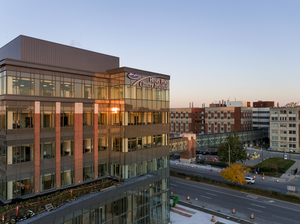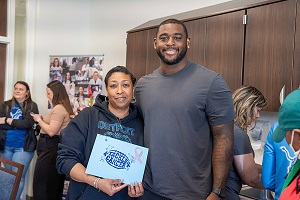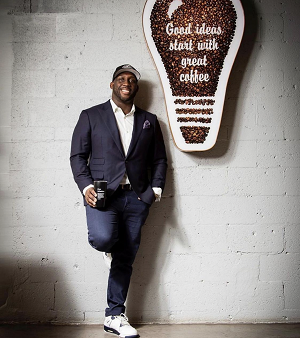Eating Well with Cancer
Are you asking yourself "What should I eat??" after receiving a cancer diagnosis? Our Henry Ford Cancer dietitians have created a personalized...
When you have von Hippel-Lindau (VHL) syndrome, you and your family need highly specialized experts by your side. We have been recognized as a VHL Clinical Care Center by the VHL Alliance.
Our multidisciplinary VHL clinic brings together leading experts from more than a dozen specialties to help our patients navigate this complex, inherited hereditary cancer syndrome. We offer genetic testing, screening and minimally invasive and advanced treatment options for VHL patients.
This coordinated care approach ensures a treatment plan that includes regular screenings and appropriately timed therapies for our VHL patients and their families.
Von Hippel-Lindau Syndrome affects about one in 36,000 people worldwide. Patients with VHL syndrome commonly develop cysts in the kidneys, pancreas, and genital tract. Tumors may be either benign or cancerous, and most frequently appear in young adults, but symptoms can occur at any time.
Patients who have a parent with VHL have a 50 percent chance of inheriting the disease. VHL is not curable. It is the most common among genetic kidney cancer syndromes, making close monitoring and regular screening an important part of your overall care.
VHL syndrome requires a lifetime of care, including regular screenings for new tumor growth so treatment – most often surgery – can be provided as early as possible.
Our VHL team, led by Dr. Craig Rogers, the top kidney cancer surgeon in the Midwest, includes experts from genetics, urology, nephrology, cancer surgery, radiology, ophthalmology, neurology and audiology, all working together to manage your care.
Dr. Rogers completed his fellowship training at the National Cancer Institute, which helped discover the VHL gene and pathways, and was a national referral center for VHL patients.
At Henry Ford, our VHL patients and their families have access to the most advanced science-based treatments. We are a national leader in minimally invasive robotic surgery techniques and have one of the largest and most experienced cancer surgery teams in the country.
Your diagnosis, treatment plan and medical team is uniquely yours. With your multidisciplinary team, you will receive the answers to all your questions and access the support you need.
Sometimes you need more than medicine. We also offer compassionate support services to help you overcome your diagnosis and we work closely with the VHL Alliance to provide additional resources so you lead a healthy, full life..
Are you asking yourself "What should I eat??" after receiving a cancer diagnosis? Our Henry Ford Cancer dietitians have created a personalized...
This twice monthly group, facilitated by a professional counselor/social worker, offers patients an opportunity to express their feelings and...
Henry Ford Cancer is excited to partner with Detroit health organization The Village Personal Training and Wellness to bring you Sound Bath and...
Join us for a supportive and nurturing yoga class designed to help you relax and unwind. This gentle practice will focus on calming breathwork...





There's a lot information about what increases your risk of developing breast cancer, and it can be hard to sort through. Here's a breakdown of the breast cancer risk factors you need to know about - and crucial advice for reducing your risk.

A head and neck cancer expert explains how HPV causes throat cancer, why there's a rise in HPV-related throat cancer and what to do to protect yourself.

A recent study showed that AI can detect early, small breast cancers that the human eye may miss. Learn more.

It's not definitively known why oral cancer rates are rising, but a rise in HPV cases may be to blame. Learn about oral cancer risk factors and symptoms to look out for.
We use cookies to improve your website experience. By using this site, you agree to our Terms of Use. Read our Internet Privacy Statement to learn what information we collect and how we use it.